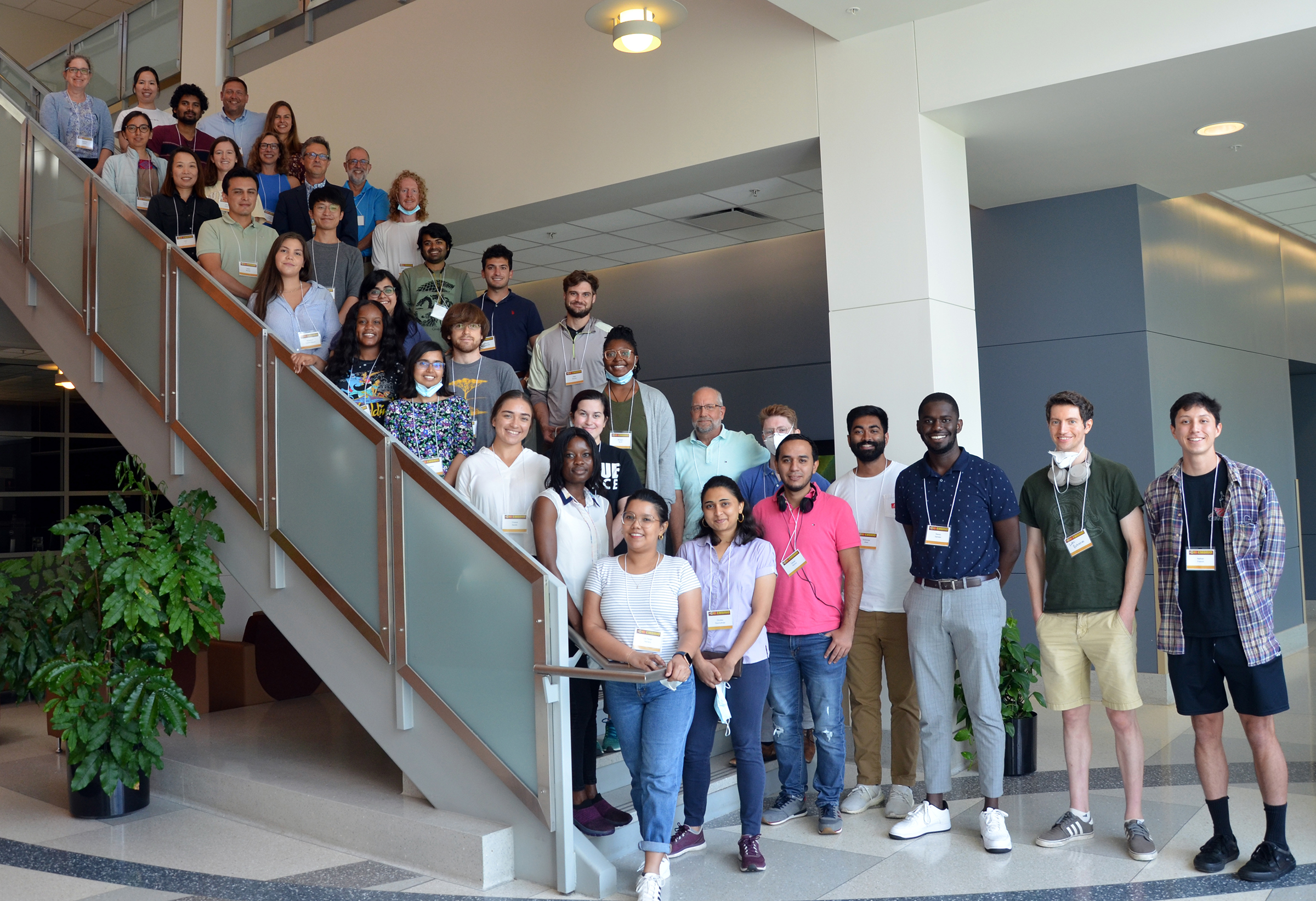EMBRIO Institute hosts trainee summer workshop at Purdue
| Author: | Brent Ladd, Senior Research Program Manager for EMBRIO Institute |
|---|
Participants worked collaboratively applying modeling and simulations to biological data. Photo by Brent T. Ladd
This past summer, the inaugural EMBRIO Summer Workshop, themed “Computational Cabal,” was hosted in the Weldon School of Biomedical Engineering. The three-day intensive workshop engaged 44 diverse trainees in achieving new knowledge and skills they are now applying in their research as integral parts of the interdisciplinary whole that will move EMBRIO forward. The workshop brought together BME students with students from biological sciences and engineering domains representing six universities (Purdue University, Indiana University, Morehouse College, University of Notre Dame, University of Pennsylvania, and University of Puerto Rico Mayagüez). The unique training teamed experimentalists together with computationalists for integration conversations and hands-on training applying modeling tools to biological data.
BME faculty members Elsje Pienaar and David Umulis, along with postdoctoral scholar Norma Perez, were integral members of the instructional team. Umulis kicked off the training with back-to-back sessions: Model Abstraction, elucidating questions of “What is a model?”, and “How are models used for hypothesis testing?”, followed with a session on Biology by the Numbers providing insight into the importance of the scale of biological phenomena for models and simulations to have accuracy at hitting the right targets. Pienaar introduced students to Coding in Jupyter Notebooks. This brought together trainees into teams to run codes and compare outcomes. For some biology students it was their first foray into coding. Perez delivered a half-day session with an Introduction to Computational Modeling of Biochemical Networks using the open-source modeling tool known as COPASI . Students delved into a biomodels database and learned to use Systems Biology Markup Language (SBML) and Systems Biology Graphical Notation (SBGN).

The EMBRIO Computational Cabal cohort was hosted in Martin C. Jischke Hall of Biomedical Engineering at Purdue University. Photo by Emily Blue
Based on a post-workshop survey of demographics (n=24), the training attracted a diverse cohort with 50% Man, 50% Woman, and Race/Ethnicity as African American 17%, American Indian 4%, Asian 33%, Hispanic 13%, Latin 8%, White 17%, prefer not to say 4%, prefer not to describe 4%. The overwhelming majority of respondents felt the workshop mostly or completely met their expectations, was organized and run well, and gave them ideas they could use in their research. Participants were asked to gauge their perceptions of their knowledge, experience, and confidence with concepts and skills after the workshop compared to before. These were directly aligned with the learning objectives of the workshop. These questions revealed that the majority of participants perceived gains for all the learning objectives.
A big thanks to all BME staff that helped make this workshop a success, including Lee Hua Chang for anchoring daily registration/information table, Susan Hardy for daily set up and coordinating meal vendors, Asem Aboelzahab for printing student posters, Emily Blue for photography, and Pamela Lamb with student travel processing.
Story by Brent Ladd, Senior Research Program Manager for EMBRIO Institute
